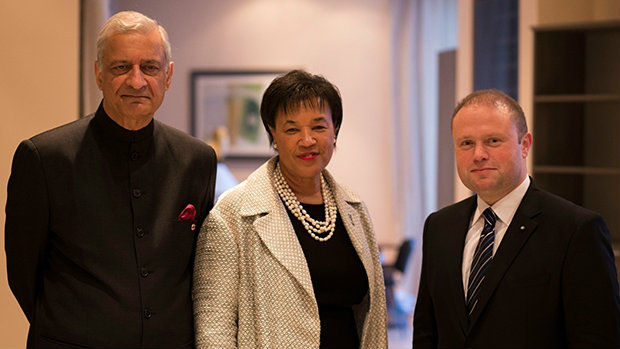Maldives singled out for scrutiny at Commonwealth summit
The Prime Ministers of UK and Malta highlighted a need for action against the Maldives, but the three-day heads of government summit ended without a public announcement. The government’s promise for reform has stalled CMAG action, sources said.

29 Nov 2015, 09:00
The Maldives was singled out for scrutiny at a Commonwealth summit in Malta this weekend; however it is not immediately clear how the 53-member group intends to act over authoritarian reversals here.
The Prime Ministers of UK and Malta highlighted a need for action, while the Commonwealth’s human rights and democracy arm, the Commonwealth Ministerial Action Group discussed the Maldives on Wednesday.
The three-day summit ended today without an announcement on the Maldives.
Speaking to the press on Thursday, Joseph Muscat, the Prime Minister of Malta, said the Maldives was high on the agenda for the biennial Commonwealth Heads of Government Meeting.
Become a member
Get full access to our archive and personalise your experience.
Already a member?
Discussion
No comments yet. Be the first to share your thoughts!
No comments yet. Be the first to join the conversation!
Join the Conversation
Sign in to share your thoughts under an alias and take part in the discussion. Independent journalism thrives on open, respectful debate — your voice matters.




